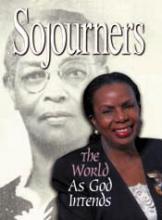Along with seven others, I came to Washington, D.C., this year committed to "living simply." We work and live communallyand generally get on each others nerves. I unwittingly committed to rooming with a morning person, who doesnt need any stimulants to get herself up and running. I manage house finances (a task I volunteered for), and I still havent gotten the checkbook to balance. We have trouble keeping the house clean. We are in each others faces and spaces 24-hours-a-day. I have learned that theres nothing simple about simple living.
Simplicity is heralded as a cure for the excesses of modern culture. Strip down, throw out (or recycle), make time. Often this results in complicated, involved actions such as planning ways to get to work without a car or cooking meals from scratch. Mainstream North American culture would have us believe that fast meals and sport utility vehicles make for a simpler, smoother-running life. Counterculture suggests that life is simpler and more meaningful without acquiring possessions and not utilizing all the available technology. Both hold up an ideal lifestyle that we must achieve by performing prescribed tasks.
Read the Full Article
